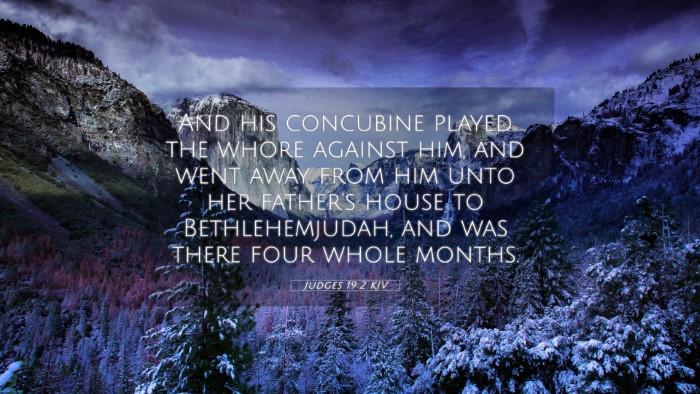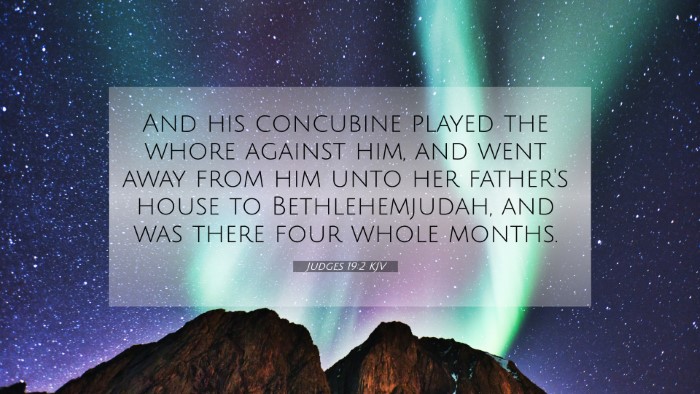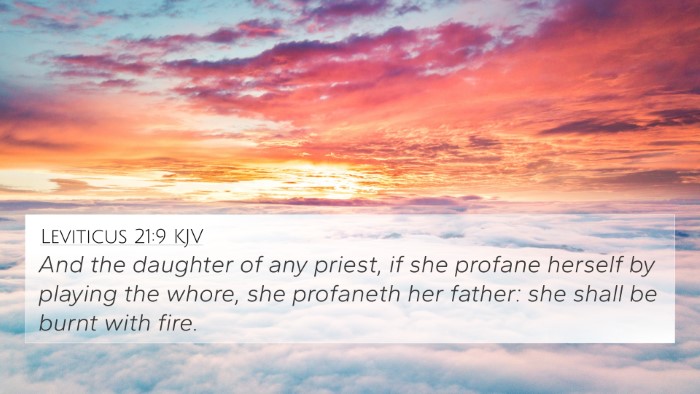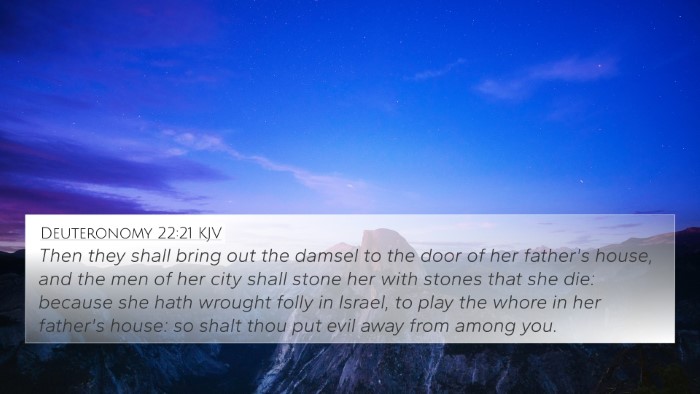Understanding Judges 19:2
Judges 19:2 reads: "But his concubine played the whore against him and went away from him unto her father's house to Bethlehemjudah, and was there four whole months."
This verse introduces a troubling narrative in the Book of Judges, highlighting moral and relational issues within the context of ancient Israel. To assist with the understanding and interpretation of this verse, we will explore insights from notable public domain commentaries, including those by Matthew Henry, Albert Barnes, and Adam Clarke.
Contextual Overview
The setting of this verse is crucial for understanding its implications. The verse is situated in a time of social chaos in Israel, where personal relationships often reflect the broader moral confusion of society. This period is marked by a lack of centralized authority, leading to personal grievances being settled in drastic and tragic manners.
Commentary Insights
-
Matthew Henry:
Henry focuses on the moral implications of the concubine’s actions, suggesting that her departure indicates deeper relational issues. He notes that the term "played the whore" suggests unfaithfulness and evokes a strong sense of betrayal. This reflects a broader theme in the Book of Judges concerning idolatry and unfaithfulness to God, paralleling how Israel often strayed from its covenantal relationship with Yahweh.
-
Albert Barnes:
Barnes provides additional cultural context, explaining that concubinage was an accepted practice in ancient times but often led to complex relational dynamics. He emphasizes that the woman's journey to her father’s house signifies both a return to safety and an indication of conflict within her relationship with the Levite. This division not only illustrates personal turmoil but also symbolizes the fracturing of Israelite society.
-
Adam Clarke:
Clarke notes the significance of Bethlehem as a place of heritage, tying it to important biblical themes. He connects this narrative to the rise of Samuel and the eventual establishment of the monarchy, suggesting that the chaotic events here set the stage for the future need for a king. Clarke also discusses the implications of such a betrayal against the backdrop of Israel's covenant identity.
Thematic Connections
Judges 19:2 opens a discussion on themes of fidelity, social structures, and divine justice. The relationship dynamics illustrated in this verse have further implications when cross-referenced with other Scriptures.
Bible Cross-References
- Genesis 16:3: The relationship of Abram and Sarai with Hagar as a concubine.
- 1 Samuel 2:22: The corruption among the sons of Eli, paralleling the moral failure seen in Judges.
- Hosea 4:14: The metaphor of unfaithfulness in Israel, likening the people's behavior to that of a spouse committing adultery.
- Matthew 5:32: Jesus’ teaching on adultery provides a New Testament perspective on marital fidelity.
- Revelation 2:20: The warning against tolerance of immorality in the church echoes the themes of betrayal in Judges.
- Proverbs 6:26: The consequences of infidelity are highlighted, showing a continual biblical theme of the pitfalls of unfaithfulness.
- Ephesians 5:25-27: Reflects the relationship between Christ and the Church, contrasting holy fidelity with the unfaithfulness in Judges.
Applying Cross-Referencing Tools
For further study, utilizing tools for Bible cross-referencing can greatly enhance the understanding of connected themes and narratives. These resources help in linking Bible scriptures to explore a comprehensive view of biblical teachings.
Conclusion
In conclusion, Judges 19:2 serves as a reminder of the complex and often painful historical narratives within the Bible. Through comparative analysis with other biblical verses and themes, one can gain deeper insights into the implications of faithfulness, societal norms, and God's overarching narrative of redemption throughout scripture.





